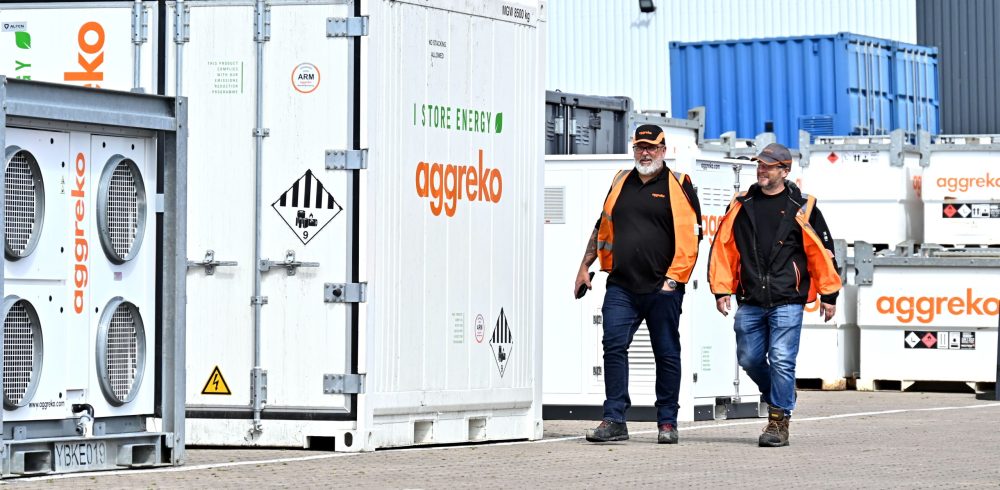In the face of volatile energy pricing and grid instability, energy solutions specialist Aggreko is highlighting the potential for battery energy storage systems (BESS) and battery hybrids to help increase resilience and on-site efficiency.
At present, the UK manufacturing sector is being squeezed by some of the highest industrial energy costs across Europe, with prices in the UK 50% higher than those in Germany or France, and four times higher than in the US.[1]
Further to this, trade body Make UK recently published a report, Tackling Electricity Prices for Manufacturers, which sets out a costed plan to restore competitiveness and unlock manufacturing growth. The trade body is warning that, without energy reform, the sector will continue to endure the effects of the cost crisis.[2]
With these challenges in mind, Aggreko is calling attention to how temporary hybrid power solutions incorporating BESS can help UK manufacturers mitigate the effects of volatile energy pricing and grid limitations via its latest guide, Sharing the Load.
Steve Ennis, Manufacturing Sector Manager at Aggreko, said: “While both understanding and usage of battery storage remains in relative infancy in this sector, there is significant potential for this technology to help address some of the major challenges that UK manufacturing is facing today.
“When deployed correctly, BESS can allow manufacturers to adjust their energy usage dynamically in line with market prices and production schedules, allowing them to remain agile. The aim of our latest guide is to facilitate this by highlighting just some of the real-world applications for battery storage in manufacturing.”
One such application explored in Sharing the Load is the use of a BESS to store energy during periods of low demand and then discharge it at peak operational hours.
This application is especially useful for managing transient loads as part of a hybrid package, such as during the start-up of electric motors powering industrial equipment. Here, the BESS can be used to meet the spike in demand during the start-up, allowing a smaller generator operating at a more optimum level to meet the base load, resulting in greater efficiency.
Alongside outlining a number of sector-specific applications, Sharing the Load also addresses a number of major misconceptions surrounding BESS, while also detailing some recent real-life tests conducted by Aggreko.
Steve concluded: “We understand that manufacturing is a business that relies upon certainty. With such tight margins, every investment feels like a risk unless manufacturers can guarantee that it will generate returns for their business.
“This is where outsourcing battery technology from a specialist can come into play, allowing manufacturers to integrate the technology into their set-up in a risk-free manner, and see what it can really do for their plant. I would encourage everyone in the sector to read our latest guide – you might just be surprised what BESS are capable of.”
Manufacturing & Engineering Magazine | The Home of Manufacturing Industry News















